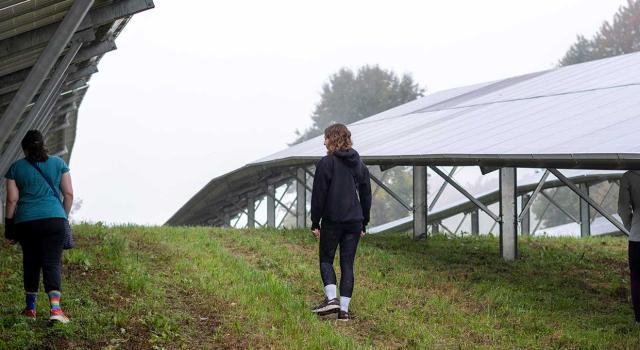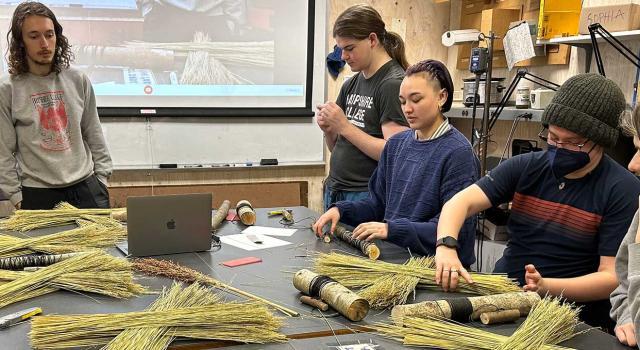Hampshire College to Establish Center for New England Food and Agriculture

Supported by a Lydia B. Stokes Foundation Grant
Hampshire College will use a $240,000 grant from the Lydia B. Stokes Foundation to establish the Center for New England Food and Agriculture, a major piece of the College's Sustainability Initiative and a step forward in the goal to source nearly 100 percent of food on campus from within 150 miles.
"We are grateful for the support of the Lydia B. Stokes Foundation," said President Jonathan Lash. "Hampshire is fortunate to be part of the Pioneer Valley, a place that feels strongly about food and agriculture, and to work with engaged colleagues throughout the Five Colleges. The Center for New England Food and Agriculture will serve as a hub to strengthen regional collaboration and to radiate new partnerships."
Under the leadership of President Lash, and building on a strong tradition of forward-thinking decision making, Hampshire College has embraced an institutional commitment to environmental sustainability, energy reduction, and water conservation. The Sustainability Initiative focuses on transitions in healthy food systems, campus operations, creative curriculum, and campus culture. The Center for New England Food and Agriculture will incorporate all four of those key elements.
Beth Hooker, Hampshire's director of food, farm, and sustainability, said: "The Center for New England Food and Agriculture will not only enhance the current academic, co-curricular, and community outreach programs at Hampshire College, but also provide a space to bring people together and explore the idea of regional food resiliency and sustainability."
Community outreach through the Center will allow Hampshire to establish relationships with community and academic partners while gaining a deeper understanding of the challenges of local sourcing. In addition to Hampshire's Food, Farm, and Sustainability Institute, the Center will include a pilot apprenticeship program, an internship program with local and international opportunities, and a collaborative research program with multi-institutional teams.
Each of these components ties into Hampshire's 100% Local Food Challenge, which established the goal of sourcing nearly 100 percent of food on campus from within a 150-mile radius, other than some obvious impossibilities such as coffee and citrus.
"The Lydia B. Stokes Foundation has made it a priority to fund local, community based food and farming initiatives such as the one Hampshire College has committed to and is very excited to help fund the creation of an agriculture learning center at the college," said Stokes Foundation Trustee Tom Willits. "This gathering place of educators and practitioners will help facilitate the successful remaking of the local food system and bring together the necessary ingredients to help grow the significant capacity already in place throughout the region. We at the foundation are very excited to help further this tremendous opportunity to positively change the local food system and further expand the benefits of creating food justice for all."
The Lydia B. Stokes Foundation is committed to the Quaker philosophy of peace and justice. The Foundation supports building resilient, healthy communities by focusing on social and economic justice, sustainable agriculture, a healthy clean environment, quality of life issues, development of local food systems, local energy security, and peace initiatives.



